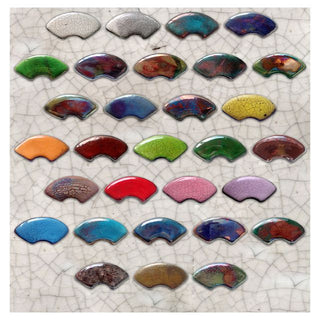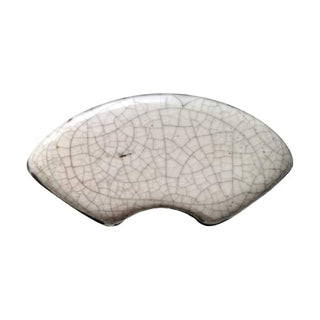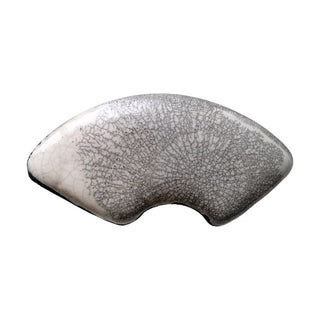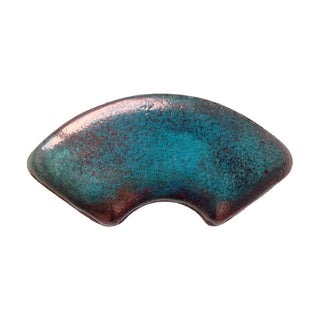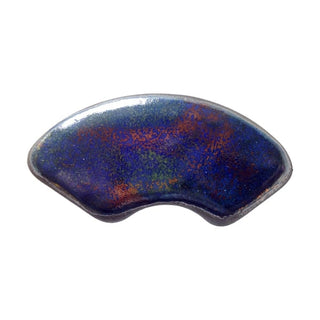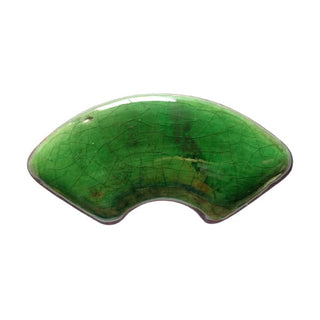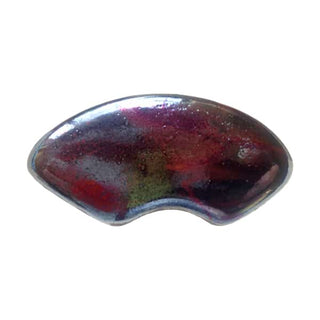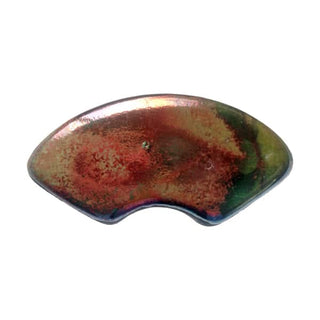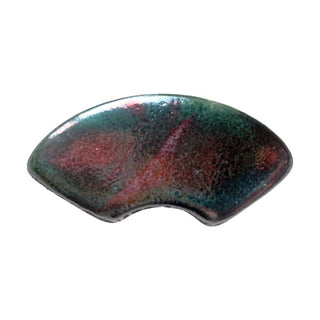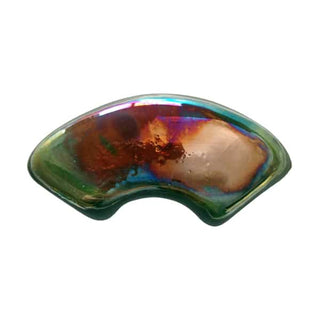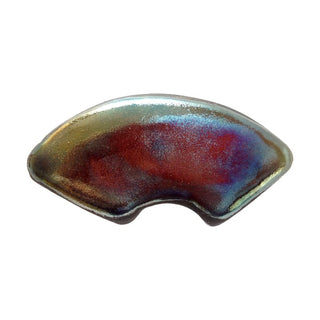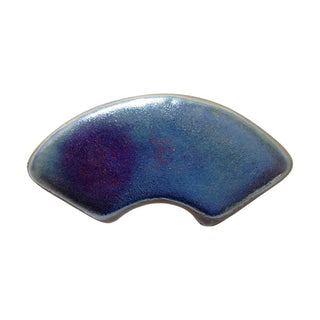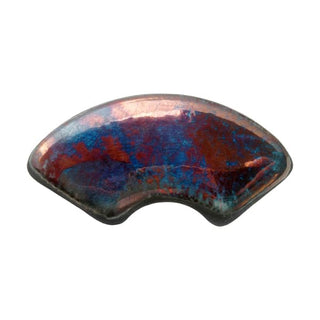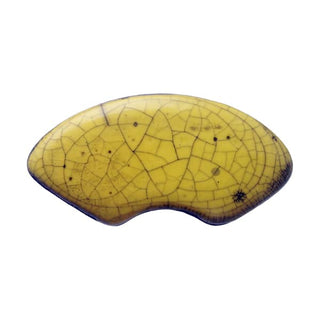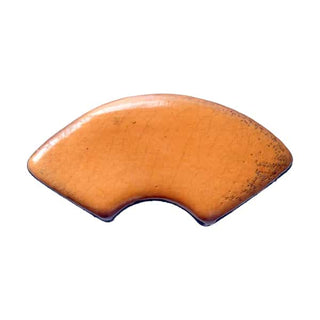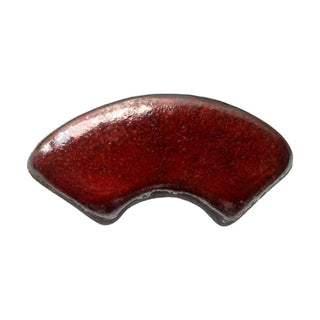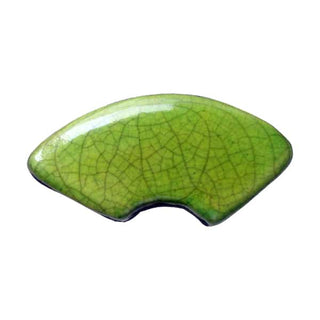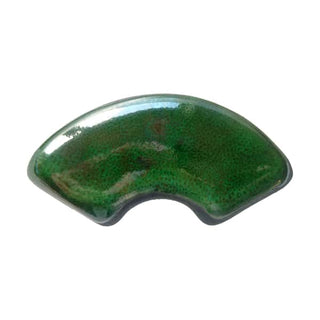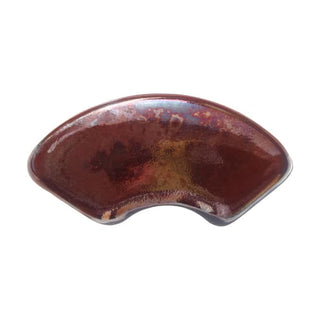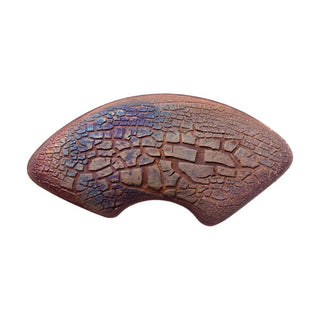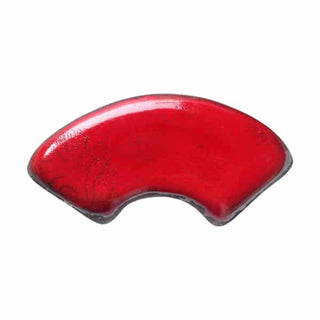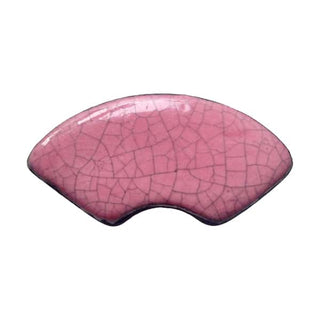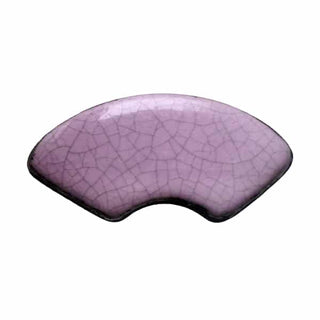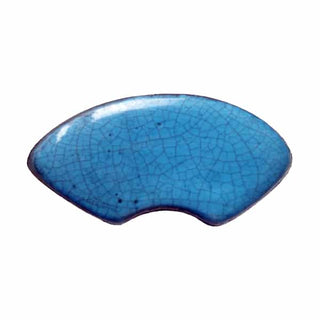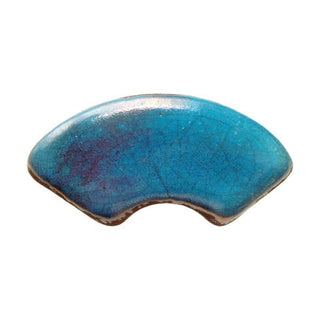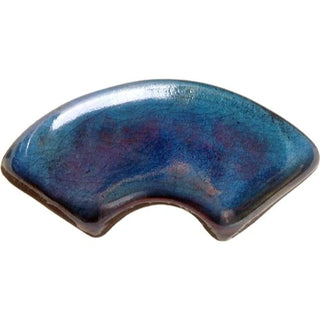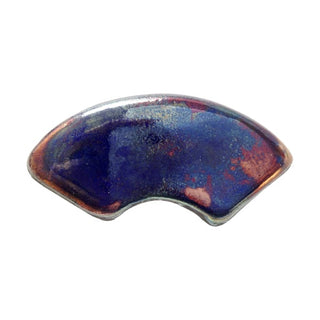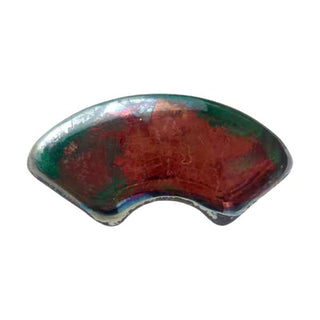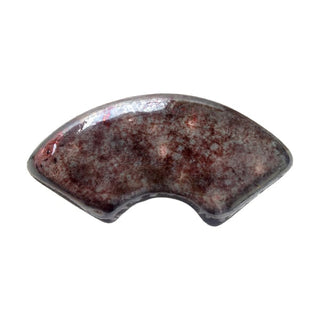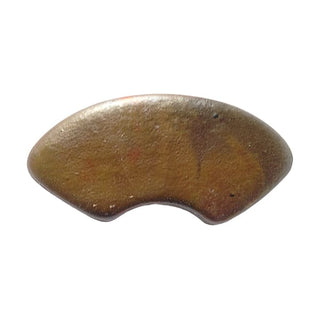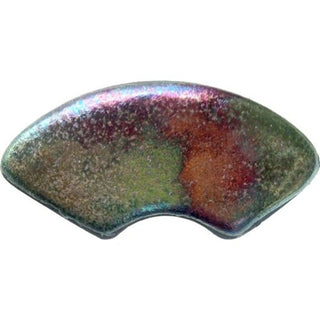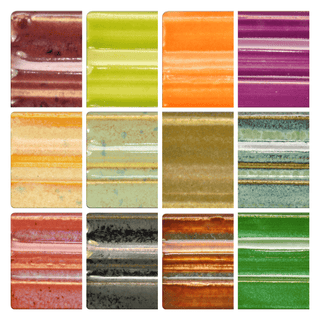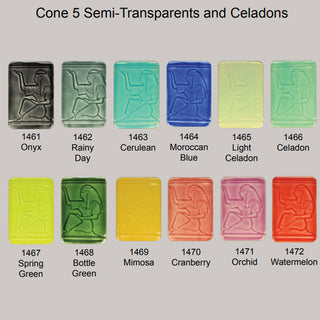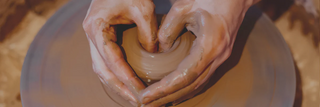Spectrum 850 series Raku Glazes
Series: 850 to 879 Glaze Type: Low Temperature
Raku glazes are some of the most popular choices due to the beautiful and unique appearance that each piece offers. Spectrum 850 Series Raku Glazes can be applied by brush, poured, or used for dipping. These glazes can be fired up to cone 06.
Due to the many variables involved in Raku firing, particularly during the reduction phase, our chip charts and printed color charts should be used only as approximate guidelines. Your results with these Spectrum glazes may vary greatly due to different firing conditions.
850-879 - Our Raku glazes were developed for firing in either electric or gas kilns. The firing process of the Spectrum glazes is described below. Eleven of the Raku glazes are lead-free and non-toxic (850,851,854,856,871,872,873,874,875,877,878). All of the rest are lead-free, but are over the threshold limit for copper and are therefore not non-toxic in the liquid state. Our liquid glazes are set up for brushing application. They can also be poured or dipped on pieces, although they should probably be thinned with a little water for this type of application. Our dry Spectrum glazes are set up for dipping application.
WARNING: When red hot pieces go into the bin, the organic material ignites and will produce flames and smoke. This part of the firing, particularly the opening of the reduction bin, should be done outside.Always take safety precautions when firing cone 6 raku glazes such as the use of high temperature gloves, protective eyewear, and a respirator. Always have a fire extinguisher handy.
FIRING TIPS
- Try to size the reduction bin to the size of the piece
- Establish a good seal to the reduction bin so that air is not entering and smoke is not leaving the bin.
- Position the organic material ( newspaper, sawdust, etc.) and the piece so that the flames can get all around the piece.
- Different organic materials may produce very different results, for example a glaze reduced in newspaper could be a beautiful blue color and the same glaze reduced in sawdust could have a metallic copper appearance.
- Pieces should be cleaned immediately with water and a hard bristle brush. After cleaning, warm the pieces in the kiln to evaporate any water from the piece. This helps to set the colors of Spectrum glazes more permanently.
850-879 - Our Raku glazes were developed for firing in either electric or gas kilns. The firing process of the Spectrum glazes is described below. Eleven of the Raku glazes are lead-free and non-toxic (850,851,854,856,871,872,873,874,875,877,878). All of the rest are lead-free, but are over the threshold limit for copper and are therefore not non-toxic in the liquid state. Our liquid glazes are set up for brushing application. They can also be poured or dipped on pieces, although they should probably be thinned with a little water for this type of application. Our dry Spectrum glazes are set up for dipping application.
WARNING: When red hot pieces go into the bin, the organic material ignites and will produce flames and smoke. This part of the firing, particularly the opening of the reduction bin, should be done outside.Always take safety precautions when firing cone 6 raku glazes such as the use of high temperature gloves, protective eyewear, and a respirator. Always have a fire extinguisher handy.
FIRING TIPS
- Try to size the reduction bin to the size of the piece
- Establish a good seal to the reduction bin so that air is not entering and smoke is not leaving the bin.
- Position the organic material ( newspaper, sawdust, etc.) and the piece so that the flames can get all around the piece.
- Different organic materials may produce very different results, for example a glaze reduced in newspaper could be a beautiful blue color and the same glaze reduced in sawdust could have a metallic copper appearance.
- Pieces should be cleaned immediately with water and a hard bristle brush. After cleaning, warm the pieces in the kiln to evaporate any water from the piece. This helps to set the colors of Spectrum glazes more permanently.
850-879 - Our Raku glazes were developed for firing in either electric or gas kilns. The firing process of the Spectrum glazes is described below. Eleven of the Raku glazes are lead-free and non-toxic (850,851,854,856,871,872,873,874,875,877,878). All of the rest are lead-free, but are over the threshold limit for copper and are therefore not non-toxic in the liquid state. Our liquid glazes are set up for brushing application. They can also be poured or dipped on pieces, although they should probably be thinned with a little water for this type of application. Our dry Spectrum glazes are set up for dipping application.
WARNING: When red hot pieces go into the bin, the organic material ignites and will produce flames and smoke. This part of the firing, particularly the opening of the reduction bin, should be done outside.Always take safety precautions when firing cone 6 raku glazes such as the use of high temperature gloves, protective eyewear, and a respirator. Always have a fire extinguisher handy.
FIRING TIPS
- Try to size the reduction bin to the size of the piece
- Establish a good seal to the reduction bin so that air is not entering and smoke is not leaving the bin.
- Position the organic material ( newspaper, sawdust, etc.) and the piece so that the flames can get all around the piece.
- Different organic materials may produce very different results, for example a glaze reduced in newspaper could be a beautiful blue color and the same glaze reduced in sawdust could have a metallic copper appearance.
- Pieces should be cleaned immediately with water and a hard bristle brush. After cleaning, warm the pieces in the kiln to evaporate any water from the piece. This helps to set the colors of Spectrum glazes more permanently.
850-879 - Our Raku glazes were developed for firing in either electric or gas kilns. The firing process of the Spectrum glazes is described below. Eleven of the Raku glazes are lead-free and non-toxic (850,851,854,856,871,872,873,874,875,877,878). All of the rest are lead-free, but are over the threshold limit for copper and are therefore not non-toxic in the liquid state. Our liquid glazes are set up for brushing application. They can also be poured or dipped on pieces, although they should probably be thinned with a little water for this type of application. Our dry Spectrum glazes are set up for dipping application.
WARNING: When red hot pieces go into the bin, the organic material ignites and will produce flames and smoke. This part of the firing, particularly the opening of the reduction bin, should be done outside.Always take safety precautions when firing cone 6 raku glazes such as the use of high temperature gloves, protective eyewear, and a respirator. Always have a fire extinguisher handy.
FIRING TIPS
- Try to size the reduction bin to the size of the piece
- Establish a good seal to the reduction bin so that air is not entering and smoke is not leaving the bin.
- Position the organic material ( newspaper, sawdust, etc.) and the piece so that the flames can get all around the piece.
- Different organic materials may produce very different results, for example a glaze reduced in newspaper could be a beautiful blue color and the same glaze reduced in sawdust could have a metallic copper appearance.
- Pieces should be cleaned immediately with water and a hard bristle brush. After cleaning, warm the pieces in the kiln to evaporate any water from the piece. This helps to set the colors of Spectrum glazes more permanently.
850-879 - Our Raku glazes were developed for firing in either electric or gas kilns. The firing process of the Spectrum glazes is described below. Eleven of the Raku glazes are lead-free and non-toxic (850,851,854,856,871,872,873,874,875,877,878). All of the rest are lead-free, but are over the threshold limit for copper and are therefore not non-toxic in the liquid state. Our liquid glazes are set up for brushing application. They can also be poured or dipped on pieces, although they should probably be thinned with a little water for this type of application. Our dry Spectrum glazes are set up for dipping application.
WARNING: When red hot pieces go into the bin, the organic material ignites and will produce flames and smoke. This part of the firing, particularly the opening of the reduction bin, should be done outside.Always take safety precautions when firing cone 6 raku glazes such as the use of high temperature gloves, protective eyewear, and a respirator. Always have a fire extinguisher handy.
FIRING TIPS
- Try to size the reduction bin to the size of the piece
- Establish a good seal to the reduction bin so that air is not entering and smoke is not leaving the bin.
- Position the organic material ( newspaper, sawdust, etc.) and the piece so that the flames can get all around the piece.
- Different organic materials may produce very different results, for example a glaze reduced in newspaper could be a beautiful blue color and the same glaze reduced in sawdust could have a metallic copper appearance.
- Pieces should be cleaned immediately with water and a hard bristle brush. After cleaning, warm the pieces in the kiln to evaporate any water from the piece. This helps to set the colors of Spectrum glazes more permanently.
CUSTOMER REVIEWS - Q&A
Got a question about this product? Ask it here and get a response from our staff and also input from the Sheffield Pottery community!

